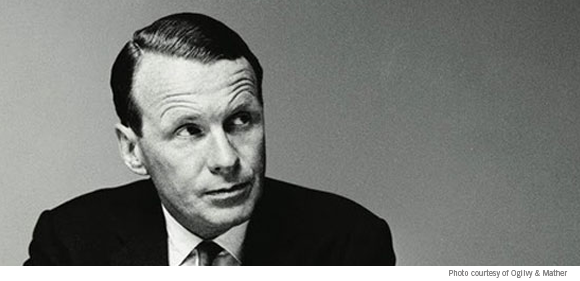
Nobody ever went broke writing a readable guide to writing in English, especially those that rise to the ranks of standard recommendations alongside Strunk and White’s The Elements of Style and William Zinsser’s On Writing Well. Both of those books endorse and exemplify the virtue of brevity, but even such short volumes take a great deal longer to read and internalize than this eminently to-the-point English style guide by the “Pope of Modern Advertising,” (and, for his part, a fan of Roman and Raphaelson’s Writing That Works) David Ogilvy, originally composed in the form of an internal memo.
Ogilvy sent it out on September 7th, 1982, directing it to everyone employed at Ogilvy & Mather, the respected ad agency he’d founded more than thirty years before. “The memo was entitled ‘How to Write,’ ” says Lists of Note, “and consisted of the following list of advice:”
1. Read the Roman-Raphaelson book on writing. Read it three times.
2. Write the way you talk. Naturally.
3. Use short words, short sentences and short paragraphs.
4. Never use jargon words like reconceptualize, demassification, attitudinally, judgmentally. They are hallmarks of a pretentious ass.
5. Never write more than two pages on any subject.
6. Check your quotations.
7. Never send a letter or a memo on the day you write it. Read it aloud the next morning—and then edit it.
8. If it is something important, get a colleague to improve it.
9. Before you send your letter or your memo, make sure it is crystal clear what you want the recipient to do.
10. If you want ACTION, don’t write. Go and tell the guy what you want.
And since we all send out more written communication today than we would have in 1982, the points on this list have only grown more advisable with time. “The better you write, the higher you go in Ogilvy & Mather,” Ogilvy adds. “People who think well, write well.” Amid all this practical advice, we’d do well not to forget that essential connection between word and thought. I like to quote a favorite Twitter aphorist of mine — and, per Ogilvy’s warning, I’ve checked my quotation first — on the subject: “People say they can’t draw when they mean they can’t see, and that they can’t write when they mean they can’t think.”
For more on the methods of Ogilvy the self-described “lousy copywriter” (but “good editor”), see also Lists of Note’s sister site Letters of Note, which has a 1955 letter wherein he lays out his work habits. A seemingly effective one involves “half a bottle of rum and a Handel oratorio on the gramophone.” Your mileage may vary.
via Lists of Note
Related Content:
Stephen King’s Top 20 Rules for Writers
Kurt Vonnegut’s 8 Tips on How to Write a Good Short Story
Writing Tips by Henry Miller, Elmore Leonard, Margaret Atwood, Neil Gaiman & George Orwell
Colin Marshall writes on cities, language, Asia, and men’s style. He’s at work on a book about Los Angeles, A Los Angeles Primer, and the video series The City in Cinema. Follow him on Twitter at @colinmarshall or on Facebook.


I read the following article and was reminded of the influence this man had on my life.
I met David Ogilvy twice when I was 29 years old (24 years ago). He persuaded me to leave Ogilvy & Mather. He told me to think of it as a building block for more important things in my career and my life. He had just been in the African bush for ten days and was on fire with the holistic notion of the interconnectedness of things. He spoke with the resolute firmness of an erudite man imparting wisdom to a novice.
His message was that a meaningful life lay in getting to grips with this notion of everything being interconnected, living a life defined by this and using our gifts as communicators (we worked in the best advertising agency in the world after all) to encourage others, without evangelising, to explore this idea for themselves. This was his timeless advice to me.
I think he was a man before his time. Have I followed his advice? I hope so, not always and not very well perhaps, but I think I have fairly consistently followed it over many years.
John Martin Bradley
https://travelswithanafricanhusky.wordpress.com/the-book/